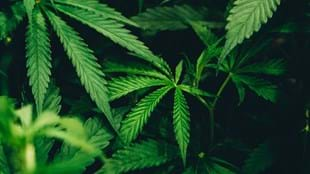Read on and you’ll learn:
• How hemp and hemp seed oil will benefit your health
• Why hemp is not the same as marijuana
• The heart and skin health benefits of hemp products
• How to use hemp best when cooking
There’s no doubt about it, hemp is the hot ingredient of 2019.
It’s in dozens of new food products; it’s popping up in everything from burgers to smoothies, as well as protein powder and hemp hearts, and in its more natural form as hemp seed oil.
The commercial growing of hemp is starting to increase around the world as many countries change their rules and regulations, allowing it to be legally grown. It’s predicted the global hemp-based food market will be worth over US$4 billion by 2026.
Hemp is a strain of the Cannabis sativa plant. It’s been cultivated for thousands of years for its fiber, edible seeds, edible oil, lubricant, and for use as a fuel.
But it’s that mention of Cannabis that sometimes makes people nervous – even though nothing we eat made from hemp will get us high. Hemp is quite different from the tetrahydrocannabinol (THC)-containing marijuana. It’s harvested from a non-psychoactive variant of the Cannabis plant.
Hemp is quite different from the tetrahydrocannabinol-containing marijuana… Nothing we eat made from hemp will get us high
So hemp-based food products shouldn’t be confused with CBD-based products, which do have psychoactive properties. Some CBD-based foods are also marketed with the term hemp in their names, which can be frustrating for consumers. It’s important to scrutinize the labels on anything labeled ‘hemp’, just to be sure you’re getting what you think you are.
Promoters of hemp call it a wonder plant. It can feed, clothe and house us all at once, they say, because it can be used to make textiles, building material, medicines and food. It’s a highly sustainable crop as it is ‘low input’, requiring no fertilizer, pesticides or water.
You’ll also hear talk of hemp’s health benefits.
Hemp seeds (sometimes called hemp hearts) are high in health-promoting omega-3 and have a good balance of omega-6 and omega-3 fats. Omega-3 fats fight inflammation and have heart health benefits, and because of hemp seeds’ particularly healthy fat profile, research into hemp’s health benefits looks promising. Several animal studies have found hemp seeds or hemp seed oil may reduce blood pressure, decrease the risk of blood clot formation and improve heart health.
It’s important to note that the omega-3 in hemp – like all plants – is different to the omega-3 we get from oily fish. It may be more difficult for our bodies to process and absorb this type of omega-3, and we need more of it to get equivalent benefit compared with fish oils. But if you’re not into fish, or are vegetarian or vegan, hemp seed oil could be a useful way to get omega-3 into your diet.
Hemp seeds are gut-friendly – they’re a low-FODMAP food and a good option for anyone prone to Irritable Bowel Syndrome
There’s also some interesting research looking at the effect of hemp seed oil, when consumed, on skin conditions such as dermatitis and eczema, that’s found a positive effect here too.
However, the oil is not suitable for cooking with – it has a low smoke point – so it’s best used for dressings or finishing. It also has a fairly strong, nutty flavor, which you may find is an acquired taste – so dressings using other strong flavors such as balsamic vinegar will balance that out.
Hemp seeds are especially high in protein compared to other seeds. This is why they’re often made into protein powders. Hemp is a complete protein, which means it contains all nine essential amino acids. This is fairly rare among plants (quinoa is another example) and makes it useful for anyone not getting much protein from animal sources.
If you’re looking for a plant-based post-workout protein powder, hemp is a little lower in protein than other plant proteins like pea or soy, but it is quite a bit higher in fiber, which is a useful bonus.
It's in the area of fiber, in fact, that hemp might be particularly good for us. The whole, unhulled seeds are high in both soluble and insoluble fiber, which have proven gut and heart health benefits. Hulled seeds (hearts) have less fiber, but are easier to eat.
Most of us could use more fiber in our diets to get to 30 grams a day, the level where serious health benefits kick in. The fiber content in the seeds available for sale seems to vary a bit, which may depend on how much they’ve been processed. If you’re thinking of trying hemp seeds, compare labels and go for unhulled, higher-fiber types.
As with other seeds, hemp seeds can be added to all sorts of dishes: try them in cereal, salads, smoothies and baking.
If you’re prone to Irritable Bowel Syndrome, it’s worth knowing that hemp seeds are gut-friendly – they’re a low-FODMAP food so shouldn’t aggravate a grumbly tummy.
When it comes to hemp-based treats, it’s worth being circumspect. Hemp chocolate, bliss balls and sweets are probably not health foods. As with anything else we see promoted as ‘super food’, eating hemp in a product that also contains tons of sugar and saturated fat tends to counteract any possible benefit.
But in its whole and oil forms, hemp is an ancient food that’s well worth getting to know again.
Niki Bezzant is a New Zealand-based food writer, editor and commentator. She is the founding editor (now editor-at-large) of Healthy Food Guide magazine, and is currently president of Food Writers New Zealand and a proud ambassador for the Garden to Table program which helps children learn how to grow, cook and share food. She is a member of the Council of Directors for the True Health Initiative, a global coalition of health professionals dedicated to sharing a science-based message of what we know for sure about lifestyle and health.








